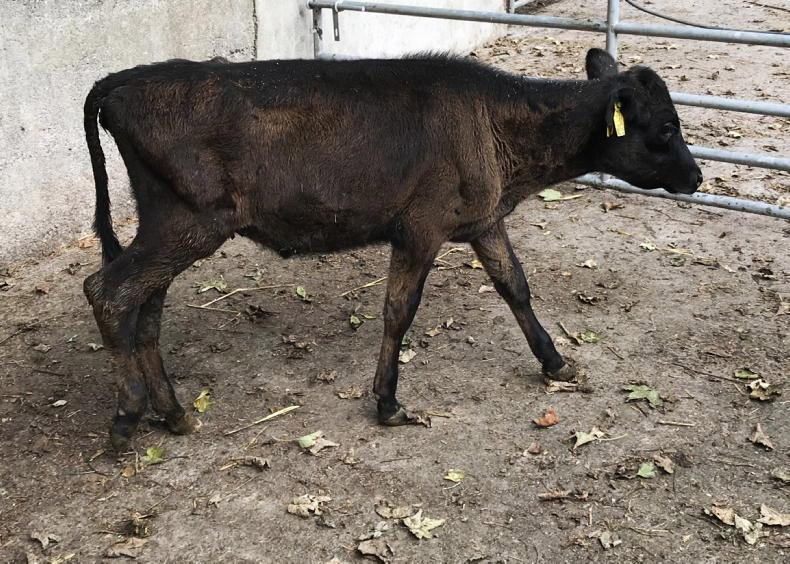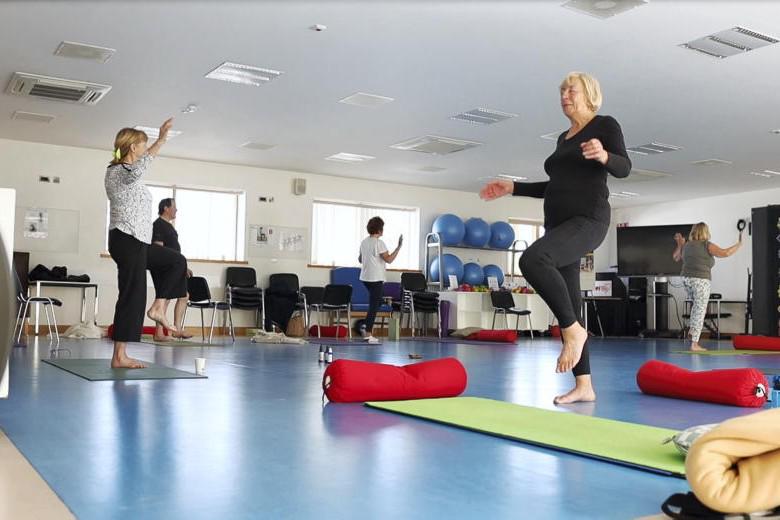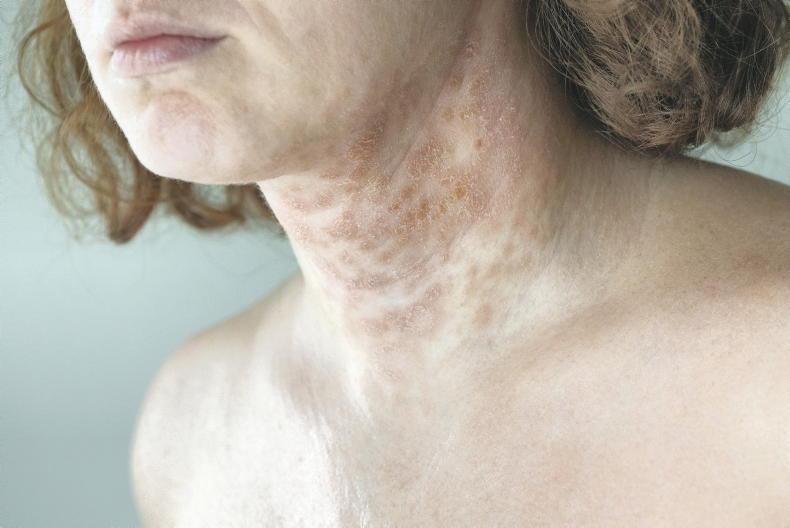How to stay safe in the home this Christmas
Researchers at University College Cork (UCC) have produced a guide to help stay safe in the home this Christmas. The guide illustrates common Christmas settings in the home to provide useful advice, particularly in relation to the importance of ventilation.
“Research clearly shows that ventilation plays a very important role in preventing the spread of COVID-19,” says Prof John Wenger, director of the Centre for Research into Atmospheric Chemistry (CRAC) at UCC.
“Fresh air is safer air and you don’t need to freeze. It is important we follow all public health advice and our guide is designed to help us have a safe Christmas in the home.”
His key tips are as follows:
1 Use a CO2 sensor to monitor the ventilation in a room.
2 Opening windows just a small bit can still make a difference.
3 At the Christmas dinner table, sit as far away as possible from people outside your household or support bubble.
4 Keep bathroom window open all of the time or the extraction fan on.
5 Close the toilet lid before you flush as it will help to prevent the virus from getting into the air.
6 Use a portable air purifier to remove the virus from the air.
7 No Christmas carols as singing is known to release a lot more virus particles than talking.
8 In the kitchen, keeping the extractor fan on can ensure additional ventilation.
The science of airborne transmission
“Coronavirus is present in tiny particles emitted from the mouth when an infected person is talking, singing or coughing,” Prof Wenger adds. “These tiny particles do not fall to the ground, but remain suspended in the air as aerosols for up to several hours. Airborne transmission occurs when these virus-containing aerosols are inhaled by another person. Airborne transmission is very important indoors, particularly in poorly ventilated spaces where levels of the virus can spread throughout the room and build up over time.
“Under these conditions, there is no safe distance from an infected person and all those present are at increased risk of infection. In fact, airborne transmission is by far the most plausible way in which the virus is transmitted during superspreading events, where one infected person (frequently asymptomatic) spreads the virus to many others.
“We will be spending more time indoors this winter and the risk of the virus spreading is even higher. Accepting the reality of airborne transmission is now more important than ever as it will empower us to fight back stronger against COVID-19.”
Keeping well
By now all homes in Ireland should have received their 'Keeping well this winter' booklet in the post.
This HSE publication is full of useful tips related to eating well, physical activity and minding your mental health this winter and has lots of pointers about the importance of routine health checks and antibiotic use, for example. There is lots of information about COVID-19 prevention too of course and recognising the difference between its symptoms and those of flu or colds. There is also a useful page for contact details, medication details and contact numbers for GP, pharmacy and more.
Dressing warmly and supplements
When you shiver, your blood gets thicker and your immune system doesn’t work as well. This leaves you more vulnerable to heart attack, stroke and picking up infection, so dress appropriately. Invest in warm underwear like thermal vests and long johns. Most department stores have them in lots of colours now. A hat is a must in cold weather because we lose 30% of our body heat through our heads.Take a good-quality multivitamin if you feel you don’t have a healthy diet and are missing out on nutrients.Echinacea is the most popular herb for supporting the immune system and may help to protect against colds and flu viruses. Garlic is antibacterial and antifungal and can be taken as a food supplement or used in cooking. Pharmacy tips
Make sure you have enough to keep you going well into the New Year to avoid weather worries. Don’t mix medications – cough and cold medicines can interact with blood pressure and diabetes medication, for example, so check with your pharmacist when you are buying. Keep all contact numbers handy – on the fridge/noticeboard for GP, out-of-hours service and pharmacistAdvice: Irish Pharmacy Union.
Wool pillows
– hypoallergenic

Woolow, Wool Pillow.
Galway farmer, Michael Burke of Dunmore has developed a wool pillow that he calls the “woolow”.
“It is completely organic, hypoallergenic and chemical-free and its natural wool fibres are covered in high-quality cotton,” he says.
As a child, his father made a pillow from wool from their sheep farm.
“That was the best pillow I ever had,” he says. “It was just the right amount of support, and because it’s a natural fibre it regulates temperature.”
As an adult, Michael spent more than 25 years working in the healthcare sector developing medications for patients with unmet needs and began to understand the positive impact a good night’s sleep can have on daily lives.
“Wool is clinically proven to prevent germs and allergens, making it a must-have for those with hay-fever or dust allergies,” he says.
The company also sells aromatherapy sleep sprays and is planning to produce wool duvets and a range of wool dog beds soon also.
“We spend more than a third of our lives in bed, so investing in a good night’s sleep is vital” says Michael Burke.
Woolow pillows (19in x 29in) come in natural and lavender-scented and retail at €75 and €85 respectively. See www.woolow.com
Flu vaccination for
children – still time
The HSE and GPs have emphasised the importance of ensuring children get the flu vaccine. This is available as a nasal vaccine to two to 12-year-olds this year for the first time.
“The first batches of nasal flu vaccine are due to expire in the middle of January,” says the HSE, “so it’s important for parents to come forward now to get their children vaccinated through participating GP practices and pharmacies.”
Calories on Christmas Day
Ever wonder how many calories there are in an average Christmas Day’s eating?
The estimate is 7,000 – more than double the recommended daily allowance for men and women. That figure includes a whole day’s eating including roast dinner, alcohol and post-dinner chocolates.
The Journal of Epidemiology and Community Health also has this list of calories in our favourite festive foods – and the amount of exercise needed to burn them off! Lots of food for thought!
Top tips for
emotional health
Make time for yourself, to relax and do things you enjoy.Have a healthy, balanced dietGet plenty of sleep.Exercise regularly.Spend time with friends and family.Talk to other people about things that worry you.Be aware of your strengths and things you find difficult.Know the warning signs.If you are feeling low right now, please talk to someone about it. Many people find talking to someone else is the best way to get help. While talking may not solve all the problems you are facing, it will help you look after yourself day to day. The Samaritans can be contacted by telephone, email, letter or visit. Call 116123 or see Samaritans.orgDID YOU KNOW?
The National Maternity Hospital has launched a new specialist TLC Pregnancy Clinic for those who have previously suffered recurrent miscarriages. See www.nmh.ieCéile Medical in Athlone has opened the dedicated Menopause Clinic in the Midlands. Contact 090-647 9748 or email info@ceilemedical.ie Thought for Christmas
A person too busy to look after his health is like a mechanic too busy to look after his tools.
Read more
Farmers highly vulnerable to COVID-19
Healthbytes
Is the 15-minute COVID-19 test the way of the future?
How to stay safe in the home this Christmas
Researchers at University College Cork (UCC) have produced a guide to help stay safe in the home this Christmas. The guide illustrates common Christmas settings in the home to provide useful advice, particularly in relation to the importance of ventilation.
“Research clearly shows that ventilation plays a very important role in preventing the spread of COVID-19,” says Prof John Wenger, director of the Centre for Research into Atmospheric Chemistry (CRAC) at UCC.
“Fresh air is safer air and you don’t need to freeze. It is important we follow all public health advice and our guide is designed to help us have a safe Christmas in the home.”
His key tips are as follows:
1 Use a CO2 sensor to monitor the ventilation in a room.
2 Opening windows just a small bit can still make a difference.
3 At the Christmas dinner table, sit as far away as possible from people outside your household or support bubble.
4 Keep bathroom window open all of the time or the extraction fan on.
5 Close the toilet lid before you flush as it will help to prevent the virus from getting into the air.
6 Use a portable air purifier to remove the virus from the air.
7 No Christmas carols as singing is known to release a lot more virus particles than talking.
8 In the kitchen, keeping the extractor fan on can ensure additional ventilation.
The science of airborne transmission
“Coronavirus is present in tiny particles emitted from the mouth when an infected person is talking, singing or coughing,” Prof Wenger adds. “These tiny particles do not fall to the ground, but remain suspended in the air as aerosols for up to several hours. Airborne transmission occurs when these virus-containing aerosols are inhaled by another person. Airborne transmission is very important indoors, particularly in poorly ventilated spaces where levels of the virus can spread throughout the room and build up over time.
“Under these conditions, there is no safe distance from an infected person and all those present are at increased risk of infection. In fact, airborne transmission is by far the most plausible way in which the virus is transmitted during superspreading events, where one infected person (frequently asymptomatic) spreads the virus to many others.
“We will be spending more time indoors this winter and the risk of the virus spreading is even higher. Accepting the reality of airborne transmission is now more important than ever as it will empower us to fight back stronger against COVID-19.”
Keeping well
By now all homes in Ireland should have received their 'Keeping well this winter' booklet in the post.
This HSE publication is full of useful tips related to eating well, physical activity and minding your mental health this winter and has lots of pointers about the importance of routine health checks and antibiotic use, for example. There is lots of information about COVID-19 prevention too of course and recognising the difference between its symptoms and those of flu or colds. There is also a useful page for contact details, medication details and contact numbers for GP, pharmacy and more.
Dressing warmly and supplements
When you shiver, your blood gets thicker and your immune system doesn’t work as well. This leaves you more vulnerable to heart attack, stroke and picking up infection, so dress appropriately. Invest in warm underwear like thermal vests and long johns. Most department stores have them in lots of colours now. A hat is a must in cold weather because we lose 30% of our body heat through our heads.Take a good-quality multivitamin if you feel you don’t have a healthy diet and are missing out on nutrients.Echinacea is the most popular herb for supporting the immune system and may help to protect against colds and flu viruses. Garlic is antibacterial and antifungal and can be taken as a food supplement or used in cooking. Pharmacy tips
Make sure you have enough to keep you going well into the New Year to avoid weather worries. Don’t mix medications – cough and cold medicines can interact with blood pressure and diabetes medication, for example, so check with your pharmacist when you are buying. Keep all contact numbers handy – on the fridge/noticeboard for GP, out-of-hours service and pharmacistAdvice: Irish Pharmacy Union.
Wool pillows
– hypoallergenic

Woolow, Wool Pillow.
Galway farmer, Michael Burke of Dunmore has developed a wool pillow that he calls the “woolow”.
“It is completely organic, hypoallergenic and chemical-free and its natural wool fibres are covered in high-quality cotton,” he says.
As a child, his father made a pillow from wool from their sheep farm.
“That was the best pillow I ever had,” he says. “It was just the right amount of support, and because it’s a natural fibre it regulates temperature.”
As an adult, Michael spent more than 25 years working in the healthcare sector developing medications for patients with unmet needs and began to understand the positive impact a good night’s sleep can have on daily lives.
“Wool is clinically proven to prevent germs and allergens, making it a must-have for those with hay-fever or dust allergies,” he says.
The company also sells aromatherapy sleep sprays and is planning to produce wool duvets and a range of wool dog beds soon also.
“We spend more than a third of our lives in bed, so investing in a good night’s sleep is vital” says Michael Burke.
Woolow pillows (19in x 29in) come in natural and lavender-scented and retail at €75 and €85 respectively. See www.woolow.com
Flu vaccination for
children – still time
The HSE and GPs have emphasised the importance of ensuring children get the flu vaccine. This is available as a nasal vaccine to two to 12-year-olds this year for the first time.
“The first batches of nasal flu vaccine are due to expire in the middle of January,” says the HSE, “so it’s important for parents to come forward now to get their children vaccinated through participating GP practices and pharmacies.”
Calories on Christmas Day
Ever wonder how many calories there are in an average Christmas Day’s eating?
The estimate is 7,000 – more than double the recommended daily allowance for men and women. That figure includes a whole day’s eating including roast dinner, alcohol and post-dinner chocolates.
The Journal of Epidemiology and Community Health also has this list of calories in our favourite festive foods – and the amount of exercise needed to burn them off! Lots of food for thought!
Top tips for
emotional health
Make time for yourself, to relax and do things you enjoy.Have a healthy, balanced dietGet plenty of sleep.Exercise regularly.Spend time with friends and family.Talk to other people about things that worry you.Be aware of your strengths and things you find difficult.Know the warning signs.If you are feeling low right now, please talk to someone about it. Many people find talking to someone else is the best way to get help. While talking may not solve all the problems you are facing, it will help you look after yourself day to day. The Samaritans can be contacted by telephone, email, letter or visit. Call 116123 or see Samaritans.orgDID YOU KNOW?
The National Maternity Hospital has launched a new specialist TLC Pregnancy Clinic for those who have previously suffered recurrent miscarriages. See www.nmh.ieCéile Medical in Athlone has opened the dedicated Menopause Clinic in the Midlands. Contact 090-647 9748 or email info@ceilemedical.ie Thought for Christmas
A person too busy to look after his health is like a mechanic too busy to look after his tools.
Read more
Farmers highly vulnerable to COVID-19
Healthbytes
Is the 15-minute COVID-19 test the way of the future?












SHARING OPTIONS